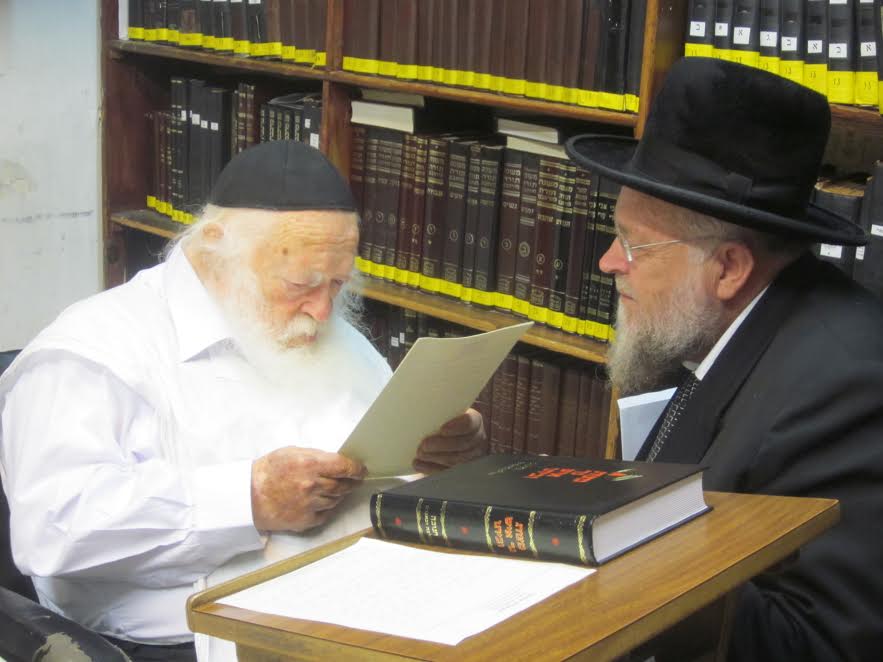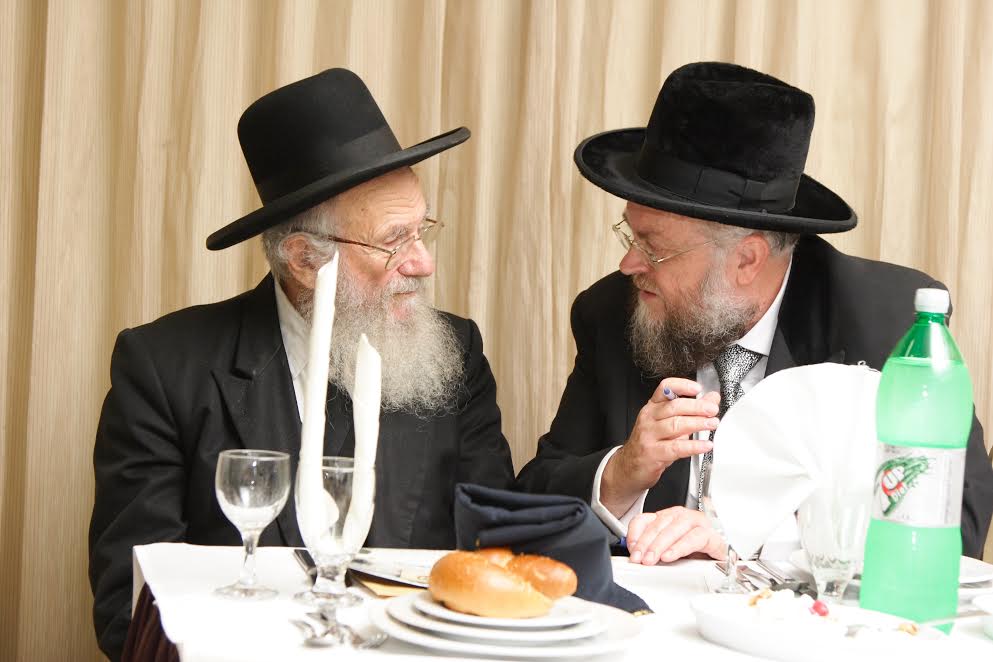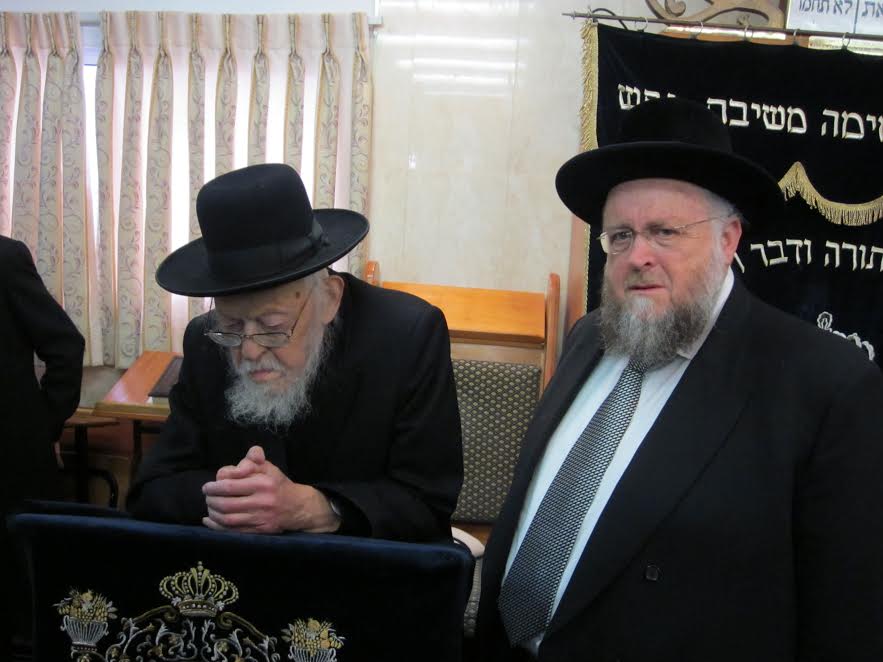Rabbi Eliyahu Schlesinger: "Throughout the year, one can deceive everyone, including oneself, but on Rosh Hashanah, all masks are shed"
Rabbi Eliyahu Schlesinger became Jerusalem's youngest neighborhood rabbi at 25, guiding the residents of Gilah through every life step. How does he foster unity across diverse communities? What was his ruling on shooting during Sukkot, and what truly brings a sweet new year? An elevating holiday conversation.
 The esteemed Rabbi Eliyahu Schlesinger (Family photo)
The esteemed Rabbi Eliyahu Schlesinger (Family photo)"Rabbi, can you help me?" This plea interrupts our phone conversation with the esteemed Rabbi Eliyahu Schlesinger, the rabbi of the Gilah neighborhood. The caller is an elderly resident questioning his Yom Kippur practice: "For more than seventy years, I've fasted on Yom Kippur, but now my doctor advises against it. Yet, I'm afraid not fasting will harm me more than fasting, as it will affect me deeply mentally. Should I fast?"
Rabbi Schlesinger listens and comforts the caller, indicating there are instances where refraining from fasting is fulfilling Hashem's command. He assures the man that he will investigate the matter thoroughly and discuss it after Rosh Hashanah. Once this call concludes, another query arises about the Amidah prayer and whether the shofar blowing interrupts one's obligation to hear it. The rabbi provides the ruling and closes his door.
It's needless to say that these are not the only questions Rabbi Schlesinger fields these days. For 42 years, he has served as the rabbi of Gilah, taking the position at just 25, becoming the youngest neighborhood rabbi in Jerusalem. He's resided there since, personally knowing many residents and guiding them along the way.
"Initially, there was only one Sephardic synagogue located in an apartment," he recounts, "along with an Ashkenazi synagogue in a congregant's home. To complete a minyan, a few Sephardim joined the Ashkenazi services. Now look — numerous synagogues, Torah institutions, and such love for Torah."

Unity Prevails
Rabbi Schlesinger's task was challenging as Gilah saw an influx of religious and ultra-Orthodox residents, yet also had secular residents fearing religious dominance.
"My task as a community rabbi is compelling," says Rabbi Schlesinger, "I tread carefully not to anger any group or encroach on anyone's space. For example, when the Ashkenazi minyan grew, they moved services to the public school gym. We feared disturbing parents, so we made the synagogue portable — a mobile ark, folding chairs, a portable bimah. Every Friday we set it up; every Saturday night we packed it away. We spent thirteen years there without complaints."
Non-observant residents often complained about 'the arrival of the ultra-Orthodox.' "I shared my past: born in Czechoslovakia, immigrated to Israel at six months old. During the Holocaust, my parents and grandparents hid in miraculous survival. Upon return, they found their Slovak apartment occupied by a non-Jewish family. My mother vividly remembered the fearful cries: 'The Jews are coming!' I urged those opposing me to love and respect one another, as respect breeds respect."
Did it work?
"Honestly, it didn't always convince everyone. Though periodically some attempt to stir discord, thank Hashem, we managed to quell tensions early on. We've achieved significant outreach; many unaffiliated parents send their children to religious schools. Neighbors' examples inspired some to strengthen their practice, observe Shabbat, or cover their heads — much sanctification of Hashem exists."

Days of Pain
Over time, Rabbi Schlesinger has guided Gilah through tough times, such as a horrific attack on bus line 32 on Pat Road, claiming 22 lives, including adults, women, and children. Even R' Moshe Gottlieb, a synagogue president, was among the dead. "It was a collective disaster," Rabbi Schlesinger recalls, "I visited every mourning family alongside then-Chief Rabbi Yisrael Meir Lau and Rabbi Eliyahu Bakshi Doron, offering strength, sharing tears. The memories remain painful for our community."
Another challenge occurred fifteen years ago when shots were fired from Beit Jalla. "It was during the Elul month and Sukkot, a challenging time. Questions arose about building a sukkah outside — was it even permissible? Halachic discussions ensued, for the Rema stipulates a sukkah is kosher only if it allows eating and sleeping. Gunfire precluded sleeping in the sukkah, raising questions about its validity. Ultimately, despite the circumstances, fulfilling the sukkah mitzvah was possible, even without sleeping there."
For a decade, Rabbi Schlesinger served as a decisor in Jerusalem's rabbinate, particularly dealing with kashrut. "Upon joining, kashrut standards were abysmal, and the religious council nearly dissolved. With Hashem's help, we elevated kashrut to its highest level ever. We removed certification from high-profile businesses, imposed sanctions, or mandated additional oversight where necessary, working tirelessly for improvement."
While no longer serving in this role, Rabbi Schlesinger clarifies: "Having witnessed businesses, venues, and restaurants closely, when an observant Jew visits, they mustn't rely solely on the owner's kashrut claim or certificate, but should request to speak with the mashgiach. If unavailable, they should contact them by phone. If hindered in doing so, suspicions should arise, and it is unwise to eat there."

Finally, we all wish for a sweet new year. Any advice from the rabbi?
Rabbi Schlesinger quotes the parasha Nitzavim, traditionally read around Rosh Hashanah: "You are standing today," explaining 'today' signifies Rosh Hashanah and 'you' spells 'truth.'
"On Rosh Hashanah," he says, "one stands before truth. All year, deception towards others and self is possible, but Rosh Hashanah is a truth moment before Hashem. A person engaged in triviality during this time, despite festive meals, and lacking sincere repentance, risks Hashem's unwillingness to forgive. One must guard against such negligence, since even repentance thought brings closeness to Hashem; but initial, genuine yearning is essential."
He adds: "The eve of Rosh Hashanah is a time to ponder our Creator's place in our lives — He created us; we own nothing independently; it's all Hashem's gift. Gratitude is imperative, and may we merit a blessed, prosperous year."

